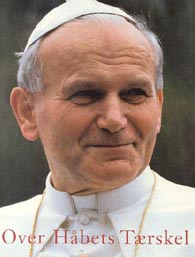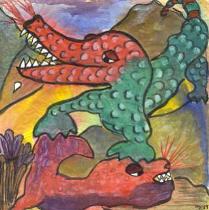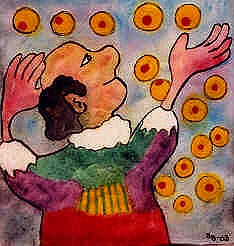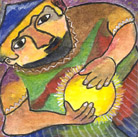JERNESALT - blekingeengl
ARTICLE 20.3.07. FROM JERNESALT, a politically independent website
Translation from Danish - (Danish text)
Blekingegadebanden - The Gang of Blekinge Street
- a dangerous, but desperate, moral and political derailment
The establishment and merits of the gang
The father figure and his Parasitic State Theory
The bizarre intersexual [feminist] struggle
The brilliant, but double character Holger Jensen
The self critical voice
The fundamental mistakes of the conception of society
The establishment and merits of the gang Next
Peter Ovig Knudsen has published the first, independent part of his thorough journalistic investigation of 'Blekingegadebanden' [the Gang of Blekinge Street, named after the street where the gang for several years had their secret apartment], and even if the second part is not being published until this autumn, the now appeared volume has aroused justified attention. The volume with the subtitle "The Danish Cell" is not only a well written and exciting report about a Danish terror cell with close ties to Palestinian terrorists of the seventies and eighties, but as an important and still actual insight in the motives which under special circumstances may drive very young, intelligent people out into a very un-Danish extremism so far away from realities that it had no earthly chance to achieve its utopian goals.
To the special circumstances belong none the least a youth- and students revolt that like any other youth revolts aim at the existing society system and the existing authorities, but because of the conflict in the middle east between the Palestinians and the Israelis and the revolt in Africa against the old colony powers tempted some revolutionary theoretician into the shortcut that the struggle against the system in Denmark is one and the same as the struggle against the all western American dominated imperialistic system, a basic attitude shared by many left wing revolutionaries. Quite special was it for the young people ending up in 'Blekingegadebanden' that they at a crucial moment in the development of their identity found an almost incomprehensibly strong and authoritarian father figure with a twenty-five year older academic. He had a special, but very well developed theory that revolution in Denmark was only possible through revolution abroad, and he considered himself as an absolute authority beyond doubt. He constructed therefore a very small, but extremely tightly organized organization, whose primary aim was to support revolutionary movements abroad with among other things clothes and money, and this quite remarkably in a covert way that neither came to the awareness of the police nor the public in general. The secretiveness was an essential part of the soul of the organization.
'Blekingegadebanden' itself was not founded until after the break with the inspirator and master, but became to stand for several big robberies, such as the robbery against the post office in Lyrskovsgade and against Daells Varehus (Daell´s Magazine) and a single unsuccessful kidnap attempt against a bank manager in Glostrup (suburb of Copenhagen). The biggest action was against the post office in Kobmagergade in Copenhagen that caused the shooting down of a police constable and thus caused a huge police investigation. The gang members had for a long time been under suspicion for unlawful activities, and five of them were now arrested by a raid at the 13th April. But decisive proof, valid for a judge, was not provided within the few weeks the arrests could be maintained. Only a sheer accident on the 2nd May lead the police to the decisive trace leading to the cover apartment in Blekinge Street at Amager (district of Copenhagen), which the gang had used as a hide-out. At the raids the police found three sets of keys for the apartment, but in spite of vigorous search it could not be located until the new trace appeared. The search of the apartment the same day provided all the criminating evidence and a completely surprising find of dangerous weapons. The members of the gang - to the public in short unknown and mostly acting as ordinary citizens - were convicted for the robbery. Niels Jorgensen, Thorkil Lauesen and Jan Weimann were each convicted to ten years prison, Carsten Nielsen and a Swizz by named Marc Rudin got eight years, Bo Weimann got seven years, one got three years and one got one years for the robbery or complicity therein. None were convicted for the murder, because all of the convicted kept quiet about which one had fired the killing shot against the police constable from the van wherein they fled with the money.
The accident, the sheer chance, that lead to the secrete apartment, was a traffic accident at Kongevejen at Birkerod, whereby Carsten Nielsen, the one man that the police had not got hold of at the raids of the 13th April, had driven frontally into a light pole and was severely injured and blinded. A Giro pay form with the address of the apartment in Blekingegade was found in the car. The despaired police and its despaired chief could breathe a sigh of relief. Not only has the robbery been cleared up. They had also in the last end uncovered the cell, long time under suspicion and closely watched for years, but never captured by the "smoking gun" or on clear evidence. The reason why, appeared to be a great professionalism and high degree of secrecy never before seen in Denmark, but also an insight in police investigation via modern it-equipment provided to the group by Jan Weimann, employee as an it-expert at Kommunedata [an it-company to serve Danish kommunes], was a complete surprise to the police intelligence [PET]. The gang had so to say been smarter than the police.
In reality, at the seventies and the eighties, the gang made several robberies that were not uncovered - all of them with extraordinary great profits. New light will be cast over these robberies through the second part of Peter Ovig Knudsen´s work. But this will have no consequences for the persons, because all robberies - contrary to the not intentional murder on the innocent police constable - long ago are made obsolete according to Danish law. Unfortunately, the case being obsolete causes the maculation of its documents at the police and the police intelligence - even in case of very big robberies where all of them had so many features in common that the police referred them to one and the same mystic gang outside the general circles of criminality. A quite incomprehensibly practice within the police, it is fair to say, so much more regrettable as we are not talking about a common crime gang. But a politically controlled gang with ties to international terrorism.
No question we all view otherwise at terrorism today than 18 or 35 years ago. How much will be the outcome of Peter Ovig Knudsen´s next volume cannot be known in advance. But the present volume is, even without the writers ultimate conclusions so rich on substance about all involved persons, that it is possible to point out the conditions to cast light on the persons special political and moral attitude and thereby cast light over the problem that is still extremely actual in the whole Western world and in the whole Middle East, namely the question which motives are driving young people into terroristic extremism quite across all normal conceptions of a proper and reasonable family life and societal life. I addition, the reader is getting a terrific funny report of a violent women encounter at the group, dating back to the father figures very special wife, but it reveals everything except consistence of the group as a whole.
In the case of 'Blekingegadebanden' it is obvious that the father figure mentioned was a central person, even if the gang members had broken with him, when they tackled their robberies, and he could thus disclaim responsibility for their merits. But without his education and brainwashing the group was hardly to be thought of. Gotfred Appel was the name of the man. The group is from him both by the police and by the Palestinian connections called the Appel group, also after the break. And because the word in English corresponds to the English word 'Apple', the group is by the Palestinians mentioned as the 'apples' or in Arabian 'tuffaha' (the little apples).
The father figure and his Parasitic State Theory Next
Gotfred Appel (born 1923) grew up in a middleclass home. His father was an architect and was of peoples high school heritage. Gotfred did excellent at school, but in 1940 he revolted against the home in a very literal sense. He tried to set his parents house on fire, but the fire died out before it reached an uncorked bottle. He also took some money - and further disappeared without a trace. A couple of days later he was arrested by the police and sent to psychiatric examination. But the psychiatrists could not make a safe diagnosis. The case was attributed to 'a somewhat flat emotional life and sexual puberty lack of balance.' Though, a school mate could tell that Gotfred the recent months had told strange stories and behaved bizarre. Among other things he had at the main pedestrian street in Copenhagen addressed an unknown lady and asked her whether she had a hammer. Gotfred could not give the school mate any sensible explanation on his conduct. Played at a stage this would have been extremely funny absurd, but humour was neither then nor later his way. The attempt of fire raising (one further followed at a hotel room) caused that Gotfred was subjected to child supervision for two years. But he passed his medium school examination.
Thereafter he studied literature at Copenhagen University, where he in 1946 got a gold medal for a dissertation [on Shakespeare]. He became a member of Denmark's Communist Party in 1945 and later reviewer on literature at the party newspaper 'Land og Folk'. But eventually he became a Maoist to so high degree that he was excluded from the party. The party chose one-sidedly to follow Kreml at the conflict with Beijing in 1963 about the correct interpretation of Marxism-Leninism and did not tolerate any deviation or faction. Appel was mainly attracted by a statement from the China Communist Party in 1963 which stated that the socialist revolution would not break out in the capitalist West, but in the third world - in Asia, Africa and Latin America. These areas were designated to be the most vulnerable under the imperialist hegemony and as the storm centre for the world revolution to direct a blow against imperialism. The very exclusion from the Danish Communist Party remained stuck in the body of Appel so that he even many years later dreamed about letting his group approach and beat up the chief party ideologue Ib Norlund.
Preliminary, Gotfred Appel at 1963 formed the organization 'Kommunistisk Arbejdskreds' (KAK) - [in English Communist Work Group]. He got employment at the Chinese embassy and established the publishing house 'Futura' which published bulletins and other material from Chinese side, including at 1967 'Maos little red book' (Quotings from Chairman Mao ZeDong). Appel was followed in KAK by a ten-year younger colleague from 'Land og Folk', the journalist Ulla Hauton, with whom he was married after the divorce from his first wife and with whom he became very dependent. Another member was the young historian Benito Scocozza, who since came across with Appel and formed his own party. The left wing is as a whole rich on dogmatic breaks. It looks like the way of thinking at the extreme wing generally is so absolutistic stamped, that normal pragmatic openness and flexibility is excluded.
Appels close ties with the Chinese and the Chinese embassy continued until 1969, at which time the Chinese Communist Party's 9th Congress expressed great excitement over the gigantic revolutionary mass movements in the heart area of capitalism, USA, Western Europe and Japan. This was exactly the opposite of Appel´s comprehension, and after several confrontational talks with the embassy people, the Chinese quite simply cancelled the cooperation with Appel. This was a hard blow against him, because it hit him directly on his livelihood.
The protests against USA´s war in Vietnam increased steadily and noisingly during the years under President Johnson and they became a cornerstone of the Appel-groups work, none the least when Holger Jensen joined the group in 1967. But the Vietnam-protests did not become the lever in the Danish workers fight against imperialism that Appel had hoped for. The escalation of the war though did lead to an escalation of the clashes between the young people and the police, but not to a revolutionary condition. The working class was in Appel´s view too well off, because it in reality had been bribed by the capitalists - through the parasitic exhaustion of the poor countries of the third world. Denmark had become a parasitic state, and the workers had become parasites on the suppressed people. They did not have any independent interest in a world revolution, and it was a waste of time to run propaganda for the working people at large. The really revolutionary people in Denmark had nothing other sensible aim than to support the revolutionary liberty movements out in the world.
This whole parasitic state theory, looking so realistic at the common Danish workers preferences in the political struggle, relied on an absolutistic comprehension of the class struggle and the contrast between the capitalist system and the interests of the common people. There was and is in the Marxist theory in advance a given thing that the capitalist system could not be of benefit to the people, but contrarily must be overturned by a revolution to give way for an alternative socialist system. This absolutistic comprehension does not hold water - such as has been proven, not only by the western European countries development of well functioning, dynamic welfare societies have shown, but also by the recent development of the countries which have tried the alternative way, but has had to reintroduce market economy and capitalism to turn their stagnation into progress. This did Gotfred Appel truly not see with his own eyes, because he died about the time of the change of system in the several communist countries. But on the contrary we on the other hand can view from the development of the Appel-group, how wrong it may go, when a fundamentally wrong theory is carried out into its most extremely absurd form to a sectarian (cultish) closed criminality.
Crucial for Gotfred Appel and his group's further destiny was the relationship with PFLP - 'Popular Front for Liberation of Palestine', that was formed at 1967 as a reaction to the six days war between Israel and Egypt. PFLP carried through some most spectacular hi-jackings at even the same year as the youth revolt and the students revolt in Europe lead to the formation of extremist movements such as 'Rote Arme Fraktion' in Germany and 'Brigada Rosso' in Italy. Also these movements stood for spectacular kidnappings and murder, which the governmental power in the concerned countries had to ward off through comprehensive police measures. These measures, on the contrary, increased the left wings resistance against the government and sympathy for the revolt movements in the third world, but not least the cause of the Palestinians. For the Appel-groups part one could now in earnest see a meaning with the revolutionary struggle. The implacable hatred and terror of the Popular Front against Israel was the central pivotal points of the world revolution. Personal ties with the PFLP were established - and the aim of the later big money robberies was quite simply to supply massive contributions to the Palestinians terror. In return were provided advanced communication equipment and training of the group members in camps in Lebanon and Yemen in terror actions.
About the real relations with the PFLP-leaders Georges Habbash and Wadi Haddad is not going to be reported in detail here. Only that it must be clear that the front is against all agreements with Israel and therefore also has been against the Palestinians autonomy rule. The absolute implacability was and is the core of their ideology - and without doubt also the thing that attracted the little Danish 'apples'.
On the other side, it is quite necessary to cast light on Gotfred Appels leadership style in KAK, because it reveals central psychological mechanisms. Appel had not only the gift of being good to talk to people, but was also in possession of great charisma. With both qualities he could attract young people who were seeking for a leader and at the same time for a purpose with their life. But when he ultimately got hold of them and through suitable schooling made them steeled and goal-oriented, then there was no way of return back to freedom either. All had to subordinate under the harsh working conditions of illegality with secrecy and security demands and also the leaders dictates. Appel tolerated no contradiction or doubt, but reacted on such subversive things with heavy reprimanding and disgracing and in cases of repeat to set the members 'on grass' (exclusion from the community for a suitable time) and in worst cases a regular exclusion.
The two last reprisals were terrible for the group members, because these quickly identified themselves so completely with the group that exclusion meant loss of identity. All of Appel´s methods reflected his own un-clarified problems, but was in principle also purely dictatoric and had as such only the serious drawback that they if used in a free country could not lead to total purging, unless one used the hardest Soviet, Chinese or Palestine method, to liquidate the doubters and traitors. And after all one did not dare to do that in the Appel-group.
There were also here some independent thinking persons like Xander Truelsen who himself chose to leave the organization, because he could get no answer to his searching questions about, among other things, the use of violence. The big revolt against Appel came only later and was due, as to be seen later, to very special circumstances. That caused a definite break between Appel and the little Apples - and a deep frustration with Appel who did not really understand what had happened. He later on withdrew to a rather poverty existence as a receiver of early retirement pension at a small apartment in Nakskov. His wife and close cooperation partner Ulla Hauton died from cancer - and he had at his old days only the one encouragement to be the subject of great attention from the side of the police and the media, when the Blekingegade case began to roll in 1989.
The bizarre intersexual [feminist] struggle Next
The Gotfred Appel case cannot be understood at all without looking at the relationship with the ten year younger Ulla Hauton, who he had come to know at Land og Folk and who joined him at the Futura publishing company. She became his mistress, and because Appel previously little by little had withdrawn from his own small family because of his political and organizational work, the step was not very big when he broke with his first wife. He had earlier on been a very attentive husband and father - with summerhouse and dog and all that. At the break he only picked up his clothes, his books and a typewriter. The teenage girls hereafter saw nothing of their father for ten years - and were not allowed to mention him in the presence of the mother.
Ulla Hauton, on her side, was a rather boyish and firm type who dared to contradict her teachers. She grew up in a conservative [middle class] home, but lost, while in middle school, her mother at a car accident whereby the father sat at the steering wheel and she herself was severely injured. She was convinced that the father intentionally had caused the accident to get rid of his wife in favour of a mistress. And Ulla broke away from him after middle school - and did not attend his funeral, because now there was only one idiot less on the earth. She was married when shortly after in 1963 having participated in the establishment of KAK and got a daughter with the man. But she later on moved away from both man and child, and had at last only contact with the child via postcards for Christmas and birthday.
As in the case with Appel and the whole group the political work was prioritized over everything else. And such an unconditional and self chosen prioritization has now not only its prize in form of sacrifices - this may also business leaders or the police investigation leaders of the Blekingegade case (!) endorse. And this can also totally mark a revolutionary fanatic and in reality make the person completely heartless.
At Kommunistisk Arbejdskreds, KAK [Communist Work Group] it came at autumn 1977 to an 'intersexual [feminist] struggle', not inconceivable in its prelude, but it became completely bizarre in its development and ended up with a decided and definitive break between Appel and Hauton on one side and the group's male core members on the other side.
The beginning of the end was that the women members of the group gradually became more and more frustrated about not to play any central role in the organization, what otherwise is a general characteristic at all centrally controlled communist organizations, the few women obtaining a central role are obtaining it exclusively on the conditions of the male role. The women of KAK did not find this to be in accordance with the communist liberty utopia, and when the secrecy in the organization further stepped up because of the close ties with PFLP, then the male dominance and chauvinism became too much for them. Six-seven of them summoned a meeting, at which they authored a 'revolt-letter' against the 'deeply rooted, disgusting and evil-smelling male chauvinism'.
They called their initiative an act of revolutionary value. 'Quantitative congestions has changed to a new quality', as they wrote in the best Marxist style. They wanted to have peace while working, they concluded. But what they were after and what they also got - with Gotfred Appels silent accept - was a criticism and self criticism of the kind that is best known from Mao´s cultural revolution, but also in the way that is also practiced within the Tvind organization in Denmark. [The Tvind school is located at Tvind near Ulfborg in Western Jutland. Their command structure appears very maoistic]. The presumptuously male members were one by one summoned to a 'prayers meeting' whereby they had to confess their male chauvinistic behavour and to promise penitence and improvement. In several cases a man was summoned to meeting every night several days in a row - and oftentimes the meetings lasted until late night. This was pure and sheer attempts of brain washing - that only very few psychic strong and ethically clarified persons can resist.
Six of the men were 'driven hard' and four other soft - and first of all things with emotional pressure. The aim was to have the victim to break down crying. One got a clear cut psychic collapse. And thereafter the sinner - quite as with christian inner mission transformation séances - must confess his sins and promise his full remorse, sometimes also in writing. Not until then could a reconstruction process be entered under control of the women. The men were treated 'like a puppet on a string', that is, was attached to one or several women who should control the persons progress between the 'prayer meetings'. And as an extra penitence, rehabilitated group members have to take active part in the treatment of their fellows. If a sinner showed too little willingness for cooperation, he was at risk to be sat on grass. One of those being run hard, the otherwise self-assertive Niels Jorgensen, was held outside all activities and community in KAK for up to half a year and was thereafter by a comrade described as 'totally broken down'.
Just one of the men summarized his criticism of the madness in an eleven pages long open letter, directed specifically to 'Ulfred' (short form for Ulla and Gotfred). It was, however, not sent, but circulated in the group as copies. The criticism compared the campaign with the methods employed by the communist parties in Soviet and Eastern Europe under Stalin´s big purgings to get party members to confess monstrous crimes against the state or the party. Even proud communists, who during the war had been able to keep silent under Gestapo-torture, broke down, exactly because they harboured a strong confidence in the party. It quite surpassed their imagination, what filthy intrigues the party had arranged for them. The critic recommended Gotfred to read Artur Londons book 'The confession', but it is maybe there you have got the inspiration?", he asked rhetorically.
But thereby the women's special intersexual [feminist] campaign did not end. On the contrary it culminated in February 1978 with outright violence. One of the diehard male chauvinists who did not want to obey, was quite simple approached at his residence and beaten up by the whole flock of furies. Subsequently they also turned to beat up the men during the 'prayer meetings'. 'The slaps in the face were abundant' as one of the involved persons put it. Some of them experienced even to be beaten by their own wives or girlfriends. Or by the comrades who were forced to attend the meetings as tormentors. One of these reflected on the development in a way that unveils the appalling psychic mechanisms which may unfold in such authoritarian suppression systems. "To beat ones own friends up is paradoxically not felt as a crucial new step. It was talk about a slow gradual development, and we were surely so accustomed to do what we were told, that we also not this time questioned the commands. We knew that the consequences of denial would be immediate exclusion."
The development led ultimately to terrible and wearing arguments between Ulla Hauton and Gotfred Appel - further to promote soul-searching with several of the women. The solidarity at the womens group began to crumble. Some began to suspect that Ulla maybe had manipulated them to cross the line or maybe had hidden motives for her clash with the men (it is obvious to think about revenge over the father). But between the men, Gotfred Appel´s right hand, the mighty Holger Jensen, now at last saw a possibility to get rid of Ulla. The inner circle around Holger Jensen distanced themselves from Appel and Hauton and began to criticize the couple's leadership. At a general meeting without participation of the couple, the leadership was simply removed. And at a subsequent meeting, where Hauton did not show up, but Appel attended and tried to pass an amicable settlement, and where members from old fear from Gotfred Appel moderated the criticism, the exclusion of Ulla Hauton was ultimately confirmed.
Five days later Gotfred Appel and Ulla Hauton announced that they withdrew from the organization. Appel did not understand what has happened. He was in reality tied to Ulla Hauton with emotionally ties which made him unable to have a merely fair rational and sober look on the women's madness and the men's growing dissatisfaction with his style of leadership. He chose loyalty against Ulla and accused later - very revealing - Holger Jensen for many years dishonesty and hypocrisy. Also with another question Appel miscalculated totally, namely with the relationship to PFLP. At this Peoples Front Holger Jensen had in the meantime - without Appel´s knowledge - become a lifelong member, and he had issued a will, that included his life, his money and his fortune in favour of PFLP. The fortune included the house at Herlev where Appel and Hauton lived - and now had to move out from, and they would at the same time loose all livelihood paid by the group.
Appel was in one blow subjected to his life's crisis. His organization was dissolved and both his economy and his relationship [with Ulla Hauton] were seriously attacked. Because of his despair he found no other way out than the mean to threaten the group to go to the police with his information. But also at this point he miscalculated. Holger Jensen forwarded the threat to PFLP, who resolutely sent a representative from London out to Gotfred at Herlev (suburb of Copenhagen) with the message that any threat against the core members of the old group was a threat to PFLP - what again unequivocally would say that it implied the risk of liquidation. Appel was according to a source scared out of his wit and resigned from his threat. But all in all the trouble in KAK had split the movement and paralyzed all illegal work for many months. What became of the women of the story, Peter Ovig Knudsen does not tell about. But the - so to say - 'plain human moral' of this appalling story can only be that a definite intersexual [feminist] struggle is destructive for any organization, and that organizations who had, during their development, not reached a genuine understanding of the value of the diversity of the sexes and equality of rights are doing better with keeping men and women separated in separate boxes.
But basically the moral of this drama must be, that neither men nor women should ever repress their natural feelings and humanity, also not when they enter revolutionary work. The repressions cannot be subdued in the long run, and they are totally destructive for all soberness and sound sense. To sacrifice all ones humanity for a cause, perverts the struggle - irrespective of whether the cause is called the truth, the great justice or the world revolution. The problem is of course that the revolutionaries believe and think otherwise. Their view of the world, moral and sense of reality has been biased compared with the norm. They have with other words become 'disturbed'.
The brilliant, but double character Holger Jensen Next
One of those of the Appel-group who sacrificed his humanity for the world revolution and the Palestinian cause was Appel´s right hand, the at 1948 born and in a middle class family raised Holger Jensen. In a strict sense he does not belong to the Blekingegade gang, because he lost his life at a bizarre car accident already at 1980. But he was like Appel and Hauton both personally and ideologically a precondition for the gang and its coming into being.
Holger was a close friend and school mate to the slightly younger Jan Weimann who was raised in a communist family and therefore oftentimes had other political views than Holger. But the resistance against the Vietnam War gathered these two and several of their other comrades in a common attitude against imperialism. Theoretically they were quickly and purposefully schooled by Gotfred Appel whom Holger Jensen just met at Borsen [the Stock Exchange] in the autumn 1967 about to distribute Maoist propaganda. Holger asked him why - and typically for Holger the answer caused that he immediately assisted Appel with the distribution. Holger Jensen was very resolute and 'action-minded'.
Holger quickly gathered a flock of activists around himself who diligently took part at the increasingly violet demonstrations against the Vietnam War or the military regime at Greece. Gotfred Appel took care to organize them in a new youth department of KAK, called Kommunistisk Ungdomsforbund (KUF) [Communist Youth League], partly to keep control over them, partly to prevent that the in every respect uncontrollable student rebel and psychology student Finn Ejnar Madsen got too much to say. He was a close friend to Holger and took part with the same eagerness and violence at the battles with the police. Holger Jensen was big, strong and well trained - and is found photographed in a leather jacket about to beat up a policeman with one of the heavy pinewood rods that Appel had provided the group with. Apple could lecture his activists that the war at Vietnam, the [military] coup at Greece and the police behavour at Copenhagen were all expression of the imperialist regimes relentless suppression of every attempt of revolt against their world wide power monopoly. And he lectured also about the revolutionary organizations clear working conditions, inclusive the need of severe secrecy.
Holger Jensen's participation in the numerous demonstrations against the Vietnam War or against the big international World Bank meeting in 1970 at the old Bella Centre at Hulgaardsvej [situated in the North Western part of Copenhagen. Now renamed the Grondal Centre and belonging to Copenhagen kommune] shall not be detailed here. Also shall not be detailed his close contacts with PFLP starting from October 1969 or the subsequent ten years many, big and professionally executed money robberies. It is not with certainty known whether Holger Jensen was one of the three participants of the unsuccessful kidnap attempt at 1980 against a bank manager at Glostrup (suburb of Copenhagen), that exceptionally for the group developed very violently, the managers wife being brutally beaten up when she resisted, further that both she and the couples present grand child, a girl eight years of age, had their hands tied behind their backs, had been gagged, had been chained to some iron tubes in the basement. The girl was at 1989 confronted with the arrested persons of the Blekingegade case and thought to be able to recognize Niels Jorgensen.
Here, on the other hand, we are going to have a look at the double character Holger Jensen, because he differs markedly from all the others of the group by having extraordinarily winning manners, both making him the girls friend, always being able to score at parties, and to an extremely liked colleague at the firebrigade at Gentofte where he quite soon after his military service was employed.
One of them who came to know him at the early years gives him the characteristic that he was 'a tall, elegant, blond fellow, the Germanic type and the dream of every mother in law'. 'He was very extrovert, always cheerful and laughing. He absolutely had his manners being to his advantage, and about the political there was no doubt in his mind'. But then there is added: "Nobody had the slightest idea that there was a potential terrorist in the young man".
It was early on clear to his family and his surroundings that he prioritized the political work over every thing else in his spare time and that he never uttered a word about what it was all about. He always had good girl friends, but blankly rejected marriage and children. At 1979 he bid a cheerful farewell to his parents at Copenhagen Central Station. Whereby PET [police intelligence] was present with their cameras, and a couple of hours later with his girl friend at the England boat at Esbjerg [harbour city for ferry traffic between England and Jutland] when he took one year leave from the fire brigade, presumably to go to the USA on a study tour. But they had no idea that he in reality went underground and retourned to Denmark the following day for subsequently to go to the Middle East regularly and furthermore to do illegal and profound criminal work at home.
There is clearly talk about one of those examples where a young man is sacrificing himself completely for a cause, even if he seems to be void of personally motives of revenge of any kind, and even if he through his charm and his great practical skill and energy could have had an excellent career at any trade, hereunder at that fire brigade, that in many aspects was excellent suitable for his drive for action and very good and well trained driver capabilities. But the 'idealism' was apparently decisive. He possessed just exactly the 'sense of justice' that made it intolerable for him to note atrocities against the civilian population in Vietnam as well as against the Palestinian refugees in the Middle East. He was big and strong and participated fearless and with life and soul at the fighting against the police, but there is no sign -as far as I see - that he practiced violence for the sake of violence. This was for him just ultimately, together with the illegality and the weapons- and money criminality, a necessity at the struggle against the suppressive imperialism.
On account of his outward light manners Holger Jensen will be a bigger enigma than the others of the group. But unfortunately there is no possibility to get a deeper insight in the enigma, because he as mentioned lost his life at a highly bizarre accident at the supermarket Bilka at Tilst at Aarhus in 1979. He was on the site together with Niels Jorgensen with the aim of committing an assault on a money transport from the supermarket to a nearby bank, and alone in the friends car, parked at passing place opposite the bank. But by the stroke of destiny the driver of a big truck in the opposite lane suddenly got an insulin chock and lost his conscience. His truck drove full speed across the lane and impacted frontally the parked car. Holger was killed on the spot, while the chocked Niels could just look on from a distance. Some days later the death announcement was in the newspaper and attracted the attention from a bright policeman. Holger Jensen, subject of attention for years from the police and PET [police intelligence], and being suspect for quite a lot, had lost his life. The car was inspected and revealed some special radio equipment. Niels Jorgensen was stated as the owner of the car and was interrogated, but made it. The police got no further at the investigation of the group.
'The apple has gone home to God' was the message in translation from Arabian that a Palestinian of the Danish PFLP-group sent to Holger Jensen´s chief or 'lead officer' at Beirut, the leader of PFLP´s intelligence service Marwan El-Fahoum, which message PET intercepted through telephone tapping. The message was more than a hint that the justice Holger Jensen and his group fought for side by side with the Palestinians was of the higher kind one called 'religious', and the kind that also by non-religious may be comprehended as their 'holy commitment' or call, even if they call things by other names. Crucial are not the theological-dogmatic interpretations of the matter, but the psychological: the holy commitment is the thing at the psyche that transgresses all other commitments in life.
The self critical voice Next
Regarding written records or statements from the members of the Blekingegade group, there are, as far as I am informed, only some more general articles published by Torkil Lauesen, who during the imprisonment got a university education and after the release - despite a certain amount of criticism - got employment at Copenhagen Kommune. But fortunately Peter Ovig Knudsen had the luck to get contact with some of the involved main persons, and to get one single of them to comment the case and the comrades, though understandable enough under full anonymity. The 'Voice' as he was called by Peter Ovig Knudsen, or rather a 'Voice', for the person in question can, for good reasons, only speak on his own behalf. But he gives at least some relevant bids on what may lead young, gifted people to enter a political activity that due to its criminality and terror not have any real chances to win greater resonance in a democratic welfare society like the Danish society.
The 'Voice' explains among other things that "For many within the organization their identity is linked to be member of KAK. This was none the least the case for Holger, who had been a member through his whole adult life and used all his time on the organization. Holger and several others had been socialized by Gotfred at KAK, since they ten years before joined as quite young and easily influenced middle school students. Politics was beyond competition the most important thing in their life. - For Holger and a couple of other fellows Gotfred and Ulla had grown to be a kind of reserve parents, and none the least had Gotfred become a new father for Holger. For years Holger had been in daily contact with Gotfred and Ulla, and for a couple of years they had even joined residence all three of them. When Gotfred decided something, then Holger conformed even in the case of disagreement'.
The 'Voice' also addresses the psychological mechanisms at KAK, as he consider the organization as a kind of sect [cult], and like other sects [cults] the members are socialized through fear. The threat to be expelled from the sect [cult], always imminent, was for the most of them extremely fear provoking.
The 'Voice' points to the 100 percent centralized construction as a basic mechanism of the organism. Another sect [cult] item was the secretiveness. And a third the taboo: 'A general taboo to talk about certain subjects. It was Gotfred and Ulla who decided what were allowed to be talked about, but the taboo was so comprehensive, that to be sure one as a member abstained from talking about anything controversial, because the limit for what was allowed to be said was not clearly known.' - Everything just slightly touching independent political thinking was according to the 'Voice' per definition taboo, and 'the taboo was established through an unusually harsh and manipulating form of reasoning. The two leaders never gave way for debate or alternative interpretations or just possibility to raise questions'.
Ultimately the sect [cult] model, according to the 'Voice', included the introduction of exactly the Command as a legitimate daily tool. A leadership construction by directive became the norm. If question marks were applied to the command, then at the same time question marks were applied to ones loyalty. And loyalty represented the highest value….. The Communist movement and other authoritarian forms of organizations have always placed loyalty against the cause and against the leadership as the highest ideal.
But why does a young, rebelling person stand this submission, is what Peter Ovig Knudsen would like to know. "It is of course a slow and gradual process", says the answer. "But the benefit for the individual member is an unusual strong solidarity and a safe identification opposite the surrounding world. The spirit at KAK was characterized thereby that the members came to regard themselves as something special - as the selected. This is a border religious phenomenon, almost like the disciples around Jesus or other guru."
And exactly about Holger Jensen it goes like he was never the great theoretician or analyst. 'He was very practically oriented and action minded. I will in no way call him a psychopath, but his commitment drew him to do actions that may appear psychopathic. I will rather call him a very emotional man with very strong values. One may say that his idealism was so strong that he at certain choice situation made brutal choices'.
The Voice's reflections over KAK´s sect [cult] like or border religious characteristics as well as the statements about Holger Jensen confirm many of the preceding evaluations. The notion 'psychopathic' may not be suitable to describe the essence of the specific form of revolutionary idealism - apart from pointing to the unusual at the phenomena. The central thing must on the contrary still be said that certain values become so strong at the psyche of the persons in question that they determine everything else. It is a very common and widespread phenomenon and has always been. The problematic and sometimes catastrophic thing thereby is always the absence of ethic contra conceptions. And this absence is as a main rule due to the trivial fact that morality by revolutionary and the majority of other people alike mainly are understood as fixed rules for conduct which one may accept or reject, but to which basically one has no alternative.
This understanding is again due to the fact that one is identifying the conscience with the morally rules one has got indoctrinated with as a child already at fem years of age, and that mainly becomes what is with a contemptible expression called 'boy scouts morality' or as called by Erling Jacobsen [Danish psychiatrist and philosopher] the most stupid part of mans personality. So, also according to the 'Voice'.
The 'Voice' informs that the group, contrary to earlier, when Gotfred exclusively decided the morale standard, after the break with him to a higher degree began to discuss the ethic problems with criminal activities. "Quite ordinary, average Danish, middle class morale norms have in fact been included in our discussions. But when these norms came in conflict with what we thought was the service of the higher cause, then the cause mostly won."
The 'Voice' gives a concrete example of the reasoning in the group: "If you are standing by a road and discover a child on way right in the way of a car driving at high speed, then you necessarily must intervene and rescue the child. If you do not act, then you are though your passivity complicit that the child is being killed. Transferred to the political level that meant that if we do not carry out the criminal acts in support of the freedom fight, then we will be about to do something worse, that is supporting the suppression." The 'Voice' even continues and adds that this explanation model filled up much, also to him. "And the model means that when one comes to situations whereby ones middle class 'boy scouts morality' comes in contradiction with the basic view of the world revolution - you are either with us or you are against us - then one cannot choose to be neutral.
The 'Voice' maintains that the group adjusted according to the general morality. "We did not do whatever. All of the groups have grown up in middle class, well functioning families with ethic values. This has well ultimately been a lifeline for us, that we have had this brake pad. 'But when the middle class morality and the cause of the revolution came in conflict, then the group made "a lot of selections in favour of the good cause'. The ethic discussions in the group in general did not fill out more the discussions about how we in practice could manage the support work. "Either one supported the liberations struggle, or one put ones non-actions in the wrong scale. So was the model of explanation, and we generally found it quite OK to do as we did - Precisely at this point I have my biggest self critical self evaluation", admits the 'Voice', "For in fact that model of explanation may be used to legitimate anything. Maybe I adjust within some ethical frames, but this is ultimately my own choice - in reality I am allowed to do anything in service of the cause. That we have allowed ourselves this space is the most seriously element at my entire political story as a member of this sect [cult]: We have surely adjusted ethically in the detail, but basically we gave ourselves a free ticket."
Such considerations should with the own words of the 'Voice' be a highly self critical evaluation, but it has just precisely the mistake, that the one-sided, for not to say one-eyed revolutionary struggle in advance is considered as the good cause, while all deeper or more superior ethical counter conception is considered as a middle class 'boy scouts morality'. But this is a delusion about ethics. It is a reduction of the ethic consideration itself into just a rational explanation model which on an intellectual level may legitimize anything. The true moral builds on the demand on 'inner consistence' (a term, introduced by above-mentioned Erling Jacobsen in a book from 1983), that is on the demand that without exception all persons from inner psychic reasons are committed to maintain a predominance of the good in their life - and it can never disregard considerations for other people or the consideration for society as a whole. The example with the girl running out on the road is basically false as a model of explanation or defense of political criminality, because to Ado whatever possible to save a girl in a life threatening situation is in no way a criminal act, but in every respect a good and responsible act. Criminal acts like robberies, kidnapping, murder and terror actions are the contrary.
It is quite simply not responsible for the revolutionary or any other people to put the 'cause' above everything else. Then it is otherwise without relevance which cause is in question or which noble or ideal purpose may be attributed. All persons are basically committed to something superior to political, religious or other cause. A 'call' or a holy commitment can also not legitimize everything. Because the superior to which one ultimately is committed is not a well defined body with patentable ideas and dogmas, but on the contrary a non-defined body who grabs one in a never concluded, but open dialogue with the whole rest of the society and all its spoken and non spoken conceptions.
The fundamental mistakes of the conception of society
But it is certainly a giant plus of Peter Ovig Knudsen´s book to include the considerations from the Voice, because they closely approximate the crucial ethic problems not only with the concrete Blekingegade gang, but with all revolutionary, idealistic and religious groups and persons.
Peter Ovig Knudsens book is outstanding journalistics building on thorough and critical research. It is at the same time important, because it - differently from Jørgen Davidsen-Nielsens book on PET [Danish police intelligence] - concentrates on an, in any rate up to this new century, rare kind of political extremism in Denmark and thereby cast light on the dangers every religious and political fanaticism and one-sidedness harbour. It will be followed by an additional volume this autumn and according to rumors also next year with a book by the historian Lars Hedegaard aimed at including the Blekingegade gang in a greater context named the Left Wing. For all the mentioned writers apply that they are not strong at either the philosophy on morality or psychologically - and therefore inevitably will fail with their analysis. But we get under all circumstances a material we ourselves can analyze in detail.
The Blekingegade gang may in a way be said to have that in common with their counterpart on the political and economical wing, economic deceivers and swindlers like Claus Riskaer Pedersen, Kurt Thorsen and Peter Brixtofte or Johannes Pedersen - not to mention the prototype from the 1920´ties and 1930´ties, the Swedish match king Ivar Kreuger - that the sense of reality completely fails. The economic speculators are moving completely into the strange and somewhat halfway fictive world of money values, so that they are ultimately loosing the ties to the civil society's usual world of order and rules. And the revolutionary terrorists are moving into the most brutal power struggles in a human hell where the ties to the civil society and its written as well as its implicated rules also fail. But there is an essential difference thereby that the first abstain from use of violence.
For the part of the Blekingegade gang it is clear that the parasitic state theories, as well as the belief in a higher cause, are false. The sense of justice and the idealistic intentions may at the surface sound plausible, but they are in reality a carte blanche to do any violent and criminal acts at will. They thereby in reality separate from contact and dialogue with people who think differently.
According to the conception of the complementary realism of totality [something like the conception of Yin and Yang] the fundamental mistakes of the gang and other revolutionaries are rooted in the conception of the society. Some believes, like regrettably far the most rationalists now a days, that the society is a construction made by the human conscience and thus may be changed at any time almost at will. But this is an illusion. The society is basically an inexplicably phenomenon in its developments, including both conscious and unconscious elements. The conscious factors behind say that all concrete societies on earth are historically defined and thus at a certain degree is subject to change. But the unconscious factors behind say that the concrete, historic related society systems also within them have a good deal of elements and structures which partly are impossible to reveal completely, and partly are impossible to change at will.
These unconscious factors are foremost from collective spontaneous kind and make up the totality of that phenomenon in the cultural history we call the spiritual dimension. It is this dimension the single person's consciousness is in direct touch with irrespective of the sensory apparatus and provides the individual with a spiritual life. And it is the just the same dimension that created the human language and makes the society as such - different form the society systems - to a principally unshakeable and in this regard holy phenomenon.
All society improver's and revolutionaries´ big mistake is their consequent abstraction from this collective base of the society. Against this phenomenon the laughable paving stone throwers a la Ungdomshusrebellerne [Youth House Rebels in Copenhagen] of 16th December 2006 and 1st March 2007, further the great destructive terror attacks a la 11th September 2001 in New York don't attain their objectives. People who think that society may be changed by these methods are simply hopeless naive. And people making young people believe in changes of society of that kind are morally, politically and cognition theoretically derailed. Gotfred Appel, Ulla Hauton, Holger Jensen and all of the Blekingegade gang belong to this derailed and mad class.
Jan Jernewicz
Translation from Danish by Poul Andersen.
References:
Peter Ovig Knudsen: Blekingegadebanden - Den danske celle. Gyldendal. 2007
Link to Peter Ovig Knudsen's website
To the top
To front page
PrintVersion
utils postfix clean
|

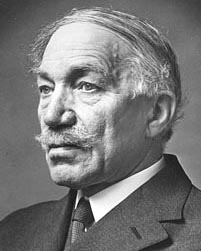

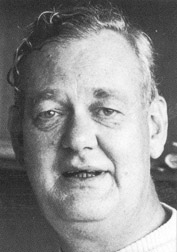
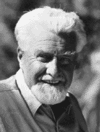


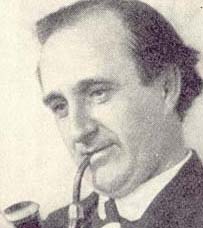

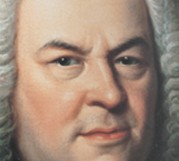






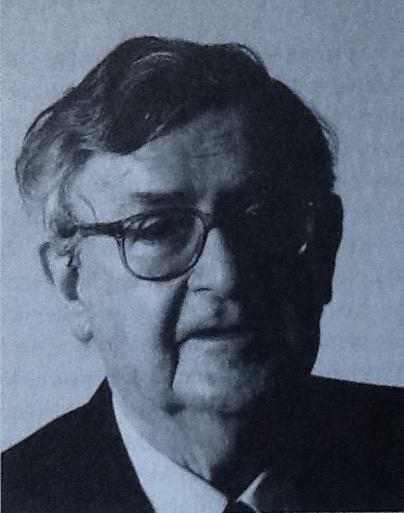
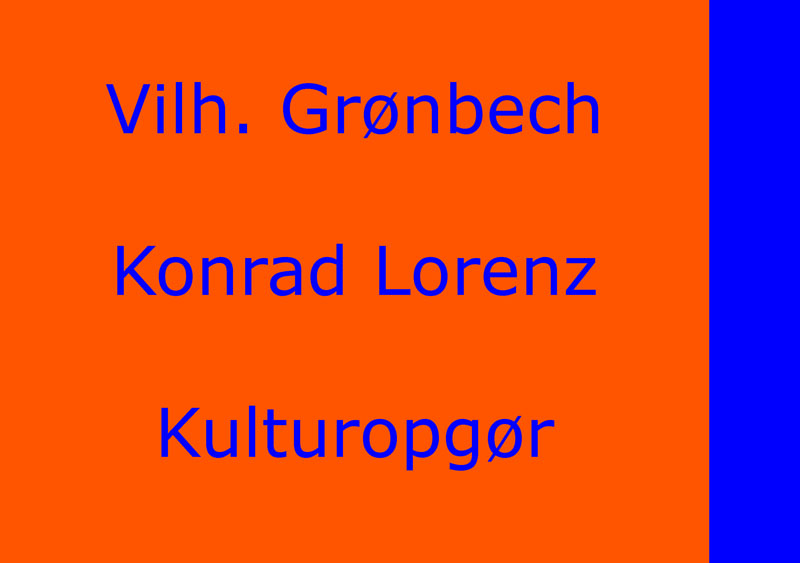
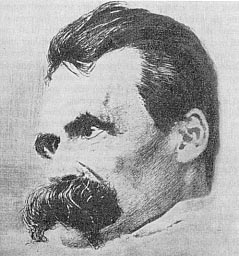
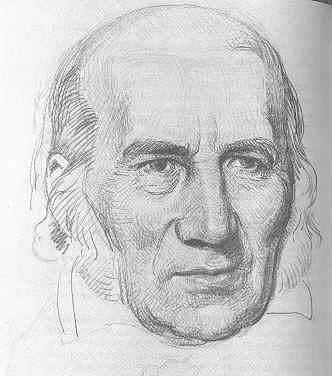

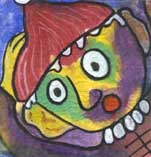

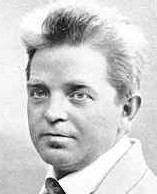
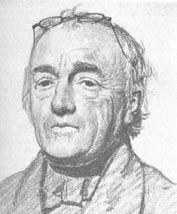



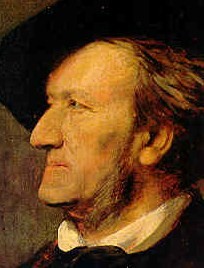
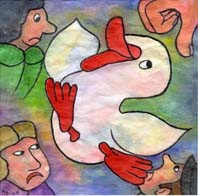

.jpg)
